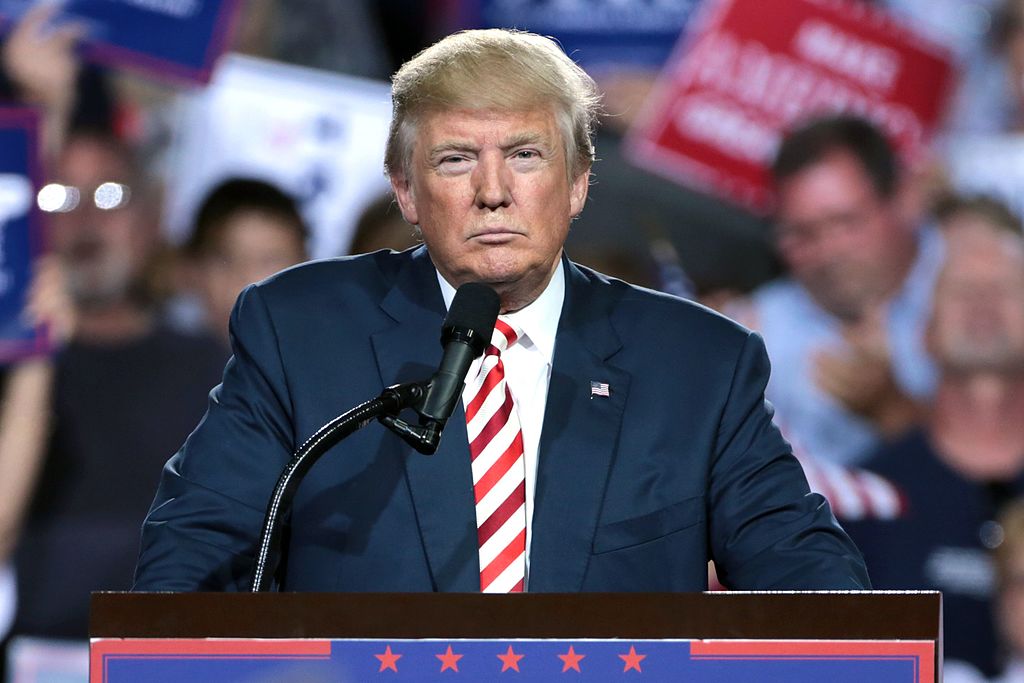Donald Trump has once again been indicted, this time at the federal level for violating the Espionage Act and endangering US security in his handling of classified documents. Unsurprisingly, he maintains his innocence, accusing the Biden administration of “election interference at the highest level” and “weaponization of the Justice Department and the FBI”. This defense, echoed by Fox News, has also been adopted by leading members of the Republican party, including Kevin McCarthy, the Speaker of the House of Representatives.
Even his opponents in the primaries, starting with his main rival Ron Desantis, have almost universally embraced the narrative of an indictment that is purely a political attack by Joe Biden on one of the leading contenders for the Republican presidential nomination.
If the most prominent Republicans are either defending the former president or keeping a low profile, it’s because Donald Trump remains very popular with right-wing voters. He leads the polls in primary voting intentions at over 50%, racing ahead over his main rival, Desantis, by more than 30 points. This gap continues to widen, even in the state of Florida, where Ron Desantis was overwhelmingly re-elected governor in 2022.
In line with previous scandals, the new indictment is unlikely to dent Republican voters’ support for the former president. It could even strengthen it, especially since, if convicted, Trump would remain electable anyway. Indeed, under the Constitution and the 14th Amendment, only a conviction for insurrection or rebellion could disqualify him. Theoretically, he could campaign from prison, as another candidate, Eugene Debbs, did in 1920 and immediately pardon himself if elected.
How can the twice-impeached, twice indicted election denier who incited the attack on the Capitol, was convicted of sexual assault, and is still the subject of numerous judicial investigations – including for election interference – still dominate the Republican Party?
On paper, it would appear there is room for an alternative to Trump within the party, especially after the disappointing results for Republicans in the 2022 mid-term elections. In fact, despite appearances, the so-called “MAGA” (Make American Great Again) republicans are in the minority in the party. According to a study published in 2022, they represent around a third of the Republicans (30 to 37%), or roughly 15% of American voters, a number confirmed by a recent NBC poll.
Divided Republicans
The problem is that, apart from this homogeneous radicalized pro-Trump base unified around the former president, the Republicans are divided. Those who might be prepared to opt for a candidate other than the former president are motivated to varying degrees and for various reasons. And almost a third of them (i.e. 20% of Republican voters) have not found an alternative candidate and therefore say they are ready to rally behind Trump.
The challenge for any of Trump’s competitors is not only to rally a sufficiently large percentage of Republican voters under the same banner but also to position themselves as both heir and rival to Donald Trump. Meanwhile, the former president will not pull his punches against anyone he might perceive as a threat, as he has been doing with Desantis.
What’s more, he benefits from the proliferation of primary candidates. The first-past-the-post system used in the primaries and the fact that, in most states, the candidate with the highest number of votes wins all the delegates are likely to favour the former president who can rely on his solid electoral base.
Almost a dozen have already officially declared their candidacy. But none of them seem to be emerging yet, and, apart from former New Jersey Governor Chris Christie, and former Vice President Mike Pence, who were already perceived as disloyal even before they entered the race, the primary candidates have largely avoided attacking Trump heads-on, preferring to save their blows for Desantis.
One other important factor not often considered is that only a tiny minority of voters cast a ballot in the primaries – less than 15% turnout among Republicans in 2016, which is still the highest rate in over 30 years. It is often assumed that it is the more radicalised fringe that votes in this poll, although research on this subject is inconclusive.
A more radical but less charismatic rival
The strategy adopted by Ron Desantis is to campaign to the right of Trump on cultural war themes: anti-woke, anti-abortion, anti-transgender and LGBT, and pro-gun. But in so doing, DeSantis is actually seeking to appeal to a segment of the electorate quite similar to that of Trump.
Described by the Financial Times as a “Donald Trump with brains and without the drama,” he is also known for his lack of charisma. His style of governance in Florida is based on authoritarianism and the political weaponization of institutions, including schools. In this regard, he is more like Viktor Orbán than the former American president. What’s more, having praised Donald Trump exceedingly, he now has to attack him without contradicting himself or, worse still, looking like a traitor to his base.
Racial resentment as a unifying factor
As soon as the former president is in trouble, a vast majority (70%) of Republican sympathizers rally behind him. For the majority of Republicans, the mere idea of an indictment feels politically motivated. Similarly, a majority continues to believe that the 2020 election was stolen from them, including those who now recognize that there is no proof whatsoever.
This enduring suspicion illustrates not only that perception counts for more than reality, but also that there is a form of paranoia symptomatic of an identity crisis rooted in economic anxiety and racial resentment. Research has extensively documented that Donald Trump’s voters are predominantly white, non-educated, evangelical and middle-class, and that it was primarily the question of identity – especially related to race, religion and gender – more than the economy, that was the driving force behind Trump’s election in 2016.
For part of this white American electorate, this comes down to what sociologist Arlie Hochschild calls “a deep history”. This story is that middle-class whites are ostracized by minority groups, abandoned by the government, victimized and treated with contempt by a left-wing elite. Their resentment stems in part from their weakening demographics: their share of the electorate fell from 69% in 1980 to 39% in 2020, and is expected to fall to 30% by 2032.
Trump’s “emotional strategy”
Donald Trump’s success stems from his charisma and his ability to tap into the fear, resentment and humiliation of that deep story. Trump has his own resentment toward the New York elite, and toward successful Black men like Barack Obama who he sees as unqualified or guilty of stealing his success by polarizing American politics around the issue of race.
What’s remarkable, and perhaps counter-intuitive, is that this narrative of racial resentment is even sometimes adopted by minorities who feel antipathy toward other minority groups. A recent study shows, for example, a growing number of Latinos and people of colour in the white supremacist movement.
Trump has also been able to tap into white evangelical Christians’ fear, as Kristin Kobes Du Mez has shown, offering them a narrative of “American carnage” that resonates with their eschatological beliefs of decline and destruction in the end times.
Martyr and superhero
Donald Trump has built a narrative around himself in which he is a victim-in-chief, even a martyr, with whom his electorate can identify on the one hand and, and a hypemasculinized superhero in whom his base can project itself on the other. On the eve of the 2016 elections, he claimed to be the “voice of the forgotten”. Ahead of the 2024 primaries, he presents himself as their “warrior” and “justice,” promising to be the “retribution” for “those who have been wronged and betrayed.”
That vengeance applies as well to the Republicans who betray him. Let’s not forget that Kevin McCarthy, whose leadership of the House relies on a slim majority, is at the mercy of the most pro-Trump fringe of his party’s elected representatives. In the same way, the Grand Old Party is held hostage by a powerful minority movement whose only consistency is its unquestioned loyalty to their leader, Donald Trump, even if it means weakening the party and losing elections.
In such a context, we can legitimately wonder what would happen if Trump were to lose the Republican primaries. It is not impossible that he would then reject the results and claim that they were rigged as he did in 2020. If he were to run then as an independent, almost 30% of Republican voters would be ready to follow him, even if history and research shows that he would have almost no chance of winning. In any case, he would blow up the Republican Party, a possibility that only strengthens his domination over an already weakened party, incapable of redefining itself along any clear ideological and intellectual lines.



 U.S. Lawmakers to Review Unredacted Jeffrey Epstein DOJ Files Starting Monday
U.S. Lawmakers to Review Unredacted Jeffrey Epstein DOJ Files Starting Monday  China Warns US Arms Sales to Taiwan Could Disrupt Trump’s Planned Visit
China Warns US Arms Sales to Taiwan Could Disrupt Trump’s Planned Visit  TrumpRx.gov Highlights GLP-1 Drug Discounts but Offers Limited Savings for Most Americans
TrumpRx.gov Highlights GLP-1 Drug Discounts but Offers Limited Savings for Most Americans  Japan Election 2026: Sanae Takaichi Poised for Landslide Win Despite Record Snowfall
Japan Election 2026: Sanae Takaichi Poised for Landslide Win Despite Record Snowfall  FxWirePro- Major Crypto levels and bias summary
FxWirePro- Major Crypto levels and bias summary  Trump Signs Executive Order Threatening 25% Tariffs on Countries Trading With Iran
Trump Signs Executive Order Threatening 25% Tariffs on Countries Trading With Iran  U.S. Announces Additional $6 Million in Humanitarian Aid to Cuba Amid Oil Sanctions and Fuel Shortages
U.S. Announces Additional $6 Million in Humanitarian Aid to Cuba Amid Oil Sanctions and Fuel Shortages  Trump Backs Nexstar–Tegna Merger Amid Shifting U.S. Media Landscape
Trump Backs Nexstar–Tegna Merger Amid Shifting U.S. Media Landscape  US Pushes Ukraine-Russia Peace Talks Before Summer Amid Escalating Attacks
US Pushes Ukraine-Russia Peace Talks Before Summer Amid Escalating Attacks  Norway Opens Corruption Probe Into Former PM and Nobel Committee Chair Thorbjoern Jagland Over Epstein Links
Norway Opens Corruption Probe Into Former PM and Nobel Committee Chair Thorbjoern Jagland Over Epstein Links  Nighttime Shelling Causes Serious Damage in Russia’s Belgorod Region Near Ukraine Border
Nighttime Shelling Causes Serious Damage in Russia’s Belgorod Region Near Ukraine Border  Trump’s Inflation Claims Clash With Voters’ Cost-of-Living Reality
Trump’s Inflation Claims Clash With Voters’ Cost-of-Living Reality 

































